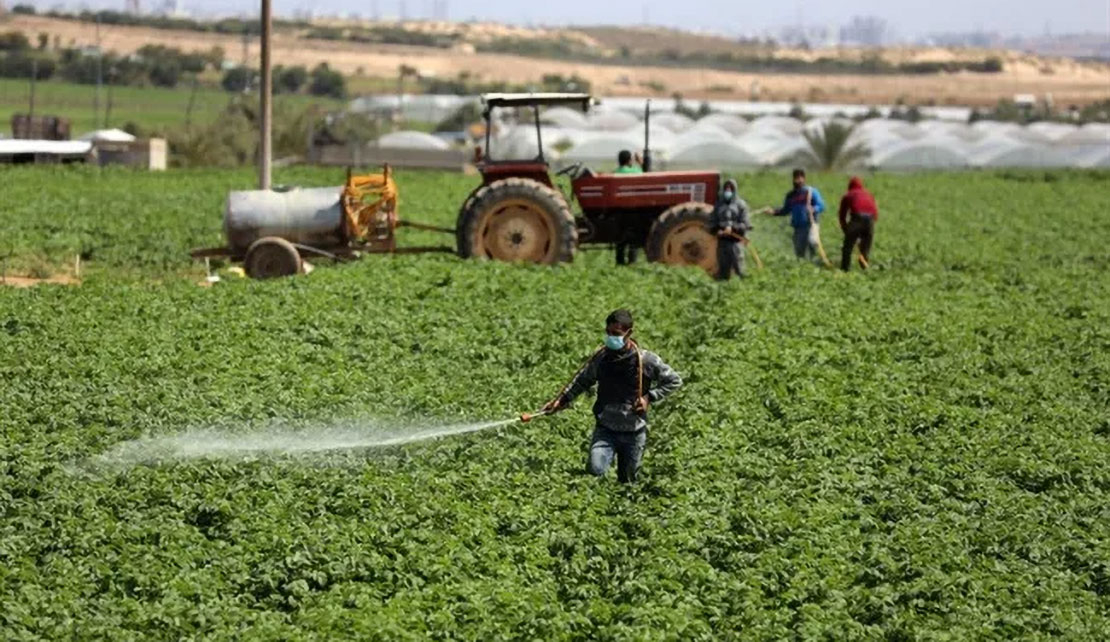Israel turns to Africa for migrant farm workers amid mass exit of foreign workers

The move by Israel to recruit Migrant African farm workers from Kenya, Uganda, Tanzania and Malawi among other African countries, has highlighted the need for the leaders of Sub-Saharan Africa to confront the challenge of food security and collaborate to provide economic opportunities for African workers.
Israel's shift to recruiting migrant workers from African countries, is a strategic response to a significant labor shortage in its agricultural sector, exacerbated by the recent conflict with Hamas. This move opens up new economic opportunities for African workers, many of whom are driven by the necessity to support their families and improve their financial situations.

A recent initiative by Malawi, sending 221 workers to Israeli farms, sparked controversy domestically, but it reflects a broader trend. These migrant workers, largely unconcerned with Middle Eastern politics, are primarily motivated by the opportunity to earn a stable income and support their families.
Israel's ambassador to Kenya, Michael Lotem, highlighted Israel's long-standing educational internships with East African nations as a foundation for this new labor relationship. Despite the war necessitating the call-up of approximately 360,000 Israeli reservists, thus exacerbating the labor shortage, Israel's approach does not directly relate to the departure of Thai workers or restrictions on Palestinian labor.
The need for 30-40,000 farm workers, as stated by Israel's agriculture ministry, has led to varied reactions in Kenya, especially concerning worker safety. The recent conflict has seen casualties among foreign workers, including Thai nationals and a Tanzanian agriculture intern, raising concerns about the conditions and safety of these migrant workers in Israel.
Past investigations and reports by rights groups have criticized the treatment of foreign laborers in Israel, though the government assures that reforms and protective measures are in place.
Amidst Kenya's unemployment crisis, some view this as a valuable opportunity. Malawi's decision to send an additional 5,000 workers, despite safety concerns, underlines the desperation for employment in these countries.
Some Kenyans have supported the deal, saying it provides badly needed jobs at a time when Kenya is battling an unemployment crisis and the rising cost of living.
Kenya has an unemployment rate of 5.5%, according to the World Bank.

"People are going out of desperation," said William Kambwandira, the executive director at the Centre for Social Accountability and Transparency, a workers' rights watchdog based in the capital Lilongwe.
Workers like Andrew Chunga and Jamison Kupatamoyo from Malawi see this as a chance for financial betterment, despite the ongoing conflict in Israel. They, along with others, have been reassured of their safety away from conflict zones and are focused on the economic prospects of their employment in Israel.
while Israel's recruitment of migrant workers from Sub-Saharan African countries like Kenya, Uganda, Tanzania, and Malawi offers immediate economic relief for many individuals, it also underscores a deeper, more systemic issue.
This situation highlights the urgent need for leaders across Sub-Saharan Africa to collaborate and envision a future where their economies are robust enough to provide ample agricultural and high-level employment opportunities domestically. Such an initiative would not only keep their citizens productively engaged but also economically satisfied within their homelands.
The migration of workers, driven by the lack of local opportunities, calls attention to the potential within these nations to develop their own industries and job markets.
This is a pivotal moment for these leaders to invest in and prioritize the economic empowerment of their populations, ensuring that the wealth of human resources in Sub-Saharan Africa is harnessed for the region's own growth and prosperity, rather than being a response to labor demands elsewhere.
Zimbabwe, Ethiopia move towards food self-sufficiency
One of the countries that have responded to the call for African food self sufficiency is Zimbabwe which this year, attained a resounding record wheat harvest of 467 905 tonnes compared to 375 000 tonnes last season.
Farmers have been praising Government’s fruitful intervention programmes that led to another record harvest this year. This is the largest harvest since growing of wheat started in 1966 with the harvests last year and this year the first time Zimbabwe achieved self-sufficiency and then a surplus in wheat.
Zimbabwe is one of the two African countries, the other being Ethiopia, which are wheat self-sufficient and has been food secure on cereals for the past four seasons after the Government took deliberate steps to ramp up agricultural production.
-30-

 En
En  Ar
Ar